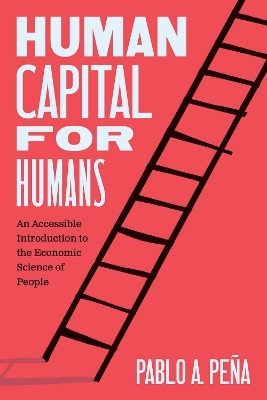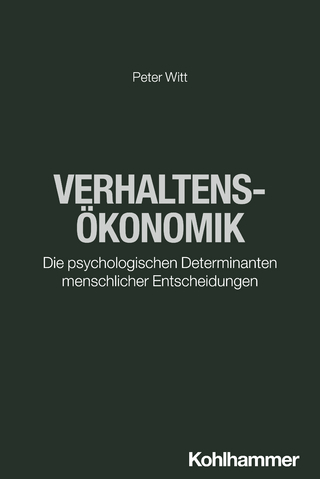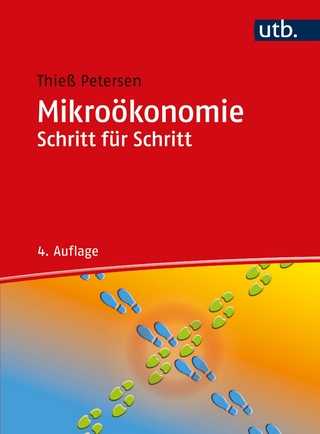
Human Capital for Humans
An Accessible Introduction to the Economic Science of People
Seiten
2025
University of Chicago Press (Verlag)
978-0-226-84143-4 (ISBN)
University of Chicago Press (Verlag)
978-0-226-84143-4 (ISBN)
- Noch nicht erschienen (ca. Juni 2025)
- Portofrei ab CHF 40
- Auch auf Rechnung
- Artikel merken
An everyday introduction to the most consequential science of modern life.
University of Chicago economist Gary Becker won the Nobel Prize largely for his advancement of human capital theory—the idea that investing in a person’s knowledge and skills has a wide range of economic effects. Becker’s writing on the subject was technical, but his teaching, especially in his famous doctoral course at Chicago, remains legendary for its accessibility, brilliance, and applications to everyday life.
In Human Capital for Humans, economist and former Becker student Pablo A. Peña channels this classroom approach to produce an accessible, essential guide to understanding the science that has become synonymous with modern life and the economy. With an illustrative and immersive style, Peña unpacks the human capital approach to domains such as parenting, aging, marriage, health, and household labor. The result is not only intellectually elevated, but an essential introduction for learners and teachers of this subject across business, management, economics, policy, and beyond.
University of Chicago economist Gary Becker won the Nobel Prize largely for his advancement of human capital theory—the idea that investing in a person’s knowledge and skills has a wide range of economic effects. Becker’s writing on the subject was technical, but his teaching, especially in his famous doctoral course at Chicago, remains legendary for its accessibility, brilliance, and applications to everyday life.
In Human Capital for Humans, economist and former Becker student Pablo A. Peña channels this classroom approach to produce an accessible, essential guide to understanding the science that has become synonymous with modern life and the economy. With an illustrative and immersive style, Peña unpacks the human capital approach to domains such as parenting, aging, marriage, health, and household labor. The result is not only intellectually elevated, but an essential introduction for learners and teachers of this subject across business, management, economics, policy, and beyond.
Pablo A. Peña is assistant instructional professor in the Kenneth C. Griffin Department of Economics at the University of Chicago. He has worked as consultant for business and non-profit organizations and is a former chief economist of Mexico’s National Banking and Securities Commission.
Preface
Introduction
1. Defining Human Capital
2. Parental Investment
3. Family Technology
4. Nature and Nurture
5. Parents in Old Age
6. Adulthood
7. Health
8. Marriage
9. Fertility
10. Tastes
11. Division of Labor
12. Economic Growth
13. What’s Next?
Acknowledgments
Notes
References
Index
| Erscheint lt. Verlag | 23.6.2025 |
|---|---|
| Zusatzinfo | 21 halftones, 23 line drawings |
| Sprache | englisch |
| Maße | 152 x 229 mm |
| Gewicht | 454 g |
| Themenwelt | Wirtschaft ► Allgemeines / Lexika |
| Wirtschaft ► Volkswirtschaftslehre ► Mikroökonomie | |
| ISBN-10 | 0-226-84143-X / 022684143X |
| ISBN-13 | 978-0-226-84143-4 / 9780226841434 |
| Zustand | Neuware |
| Informationen gemäß Produktsicherheitsverordnung (GPSR) | |
| Haben Sie eine Frage zum Produkt? |
Mehr entdecken
aus dem Bereich
aus dem Bereich
die psychologischen Determinanten menschlicher Entscheidungen
Buch | Softcover (2024)
Kohlhammer (Verlag)
CHF 54,60
Wirtschaftszusammenhänge verstehen und mitreden können
Buch | Softcover (2023)
Wiley-VCH (Verlag)
CHF 27,95


